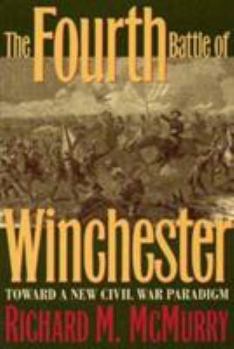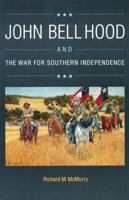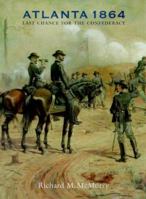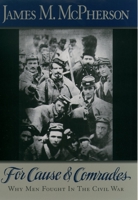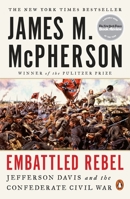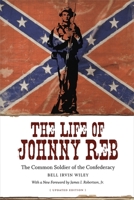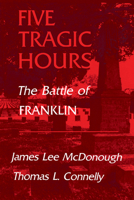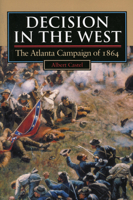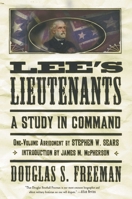The Fourth Battle of Winchester: Toward a New Civil War Paradigm
Select Format
Select Condition 
You Might Also Enjoy
Book Overview
Customer Reviews
Rated 5 starsQuirky, clever discussion of grand strategy in the civil war
McMurry's title is ironic -- there was no Fourth Battle of Winchester. He begins the book with a "what-if" counterfactual story of the Confederates decisively winning the 1864 battle of Cedar Creek, which would therefore have been known as the Fourth Battle of Winchester for the town through which the retreating Yankees would have fled. McMurry goes on to describe a series of plausible Confederate victories in the Virginia...
0Report
Rated 4 starsQuick read
Perhaps nothing more to add to the first two reviewers (with whom I agree with) other than to state that this book allows one to consider the importance of the West to the Confederates' cause. While I believe the first three chapters are nothing more than entertaining, at best, the last chapters are more worthwhile to a student of the Civil War. I found myself agreeing with some of McMurry's thesis while arguing with others...
0Report
Rated 4 starsConvincingly Argued
In this relatively short book, beginning with a counter-factual, the author argues that it is impossible to understand the Civil War without studying the western campaigns. Kentucky's neutrality gave the Confederacy time to prepare its defenses in the west, and hopefully to woo the vital state with its easily defensible northern border to its side. Instead, the bishop General Polk violated its neutrality, forcing it to the...
0Report
Rated 4 starsFun to read
This is a book on Civil War grand strategy during the last year of the war. It assumes the reader is familiar with the campaigns and battles mentioned, and so is not for a Civil War novice. The book begins with a counterfactual depiction of Early's raid, and the resulting consequences. It then segues to the author's previously published arguments that the West was the decisive theatre, and that Grant should have stayed...
0Report











